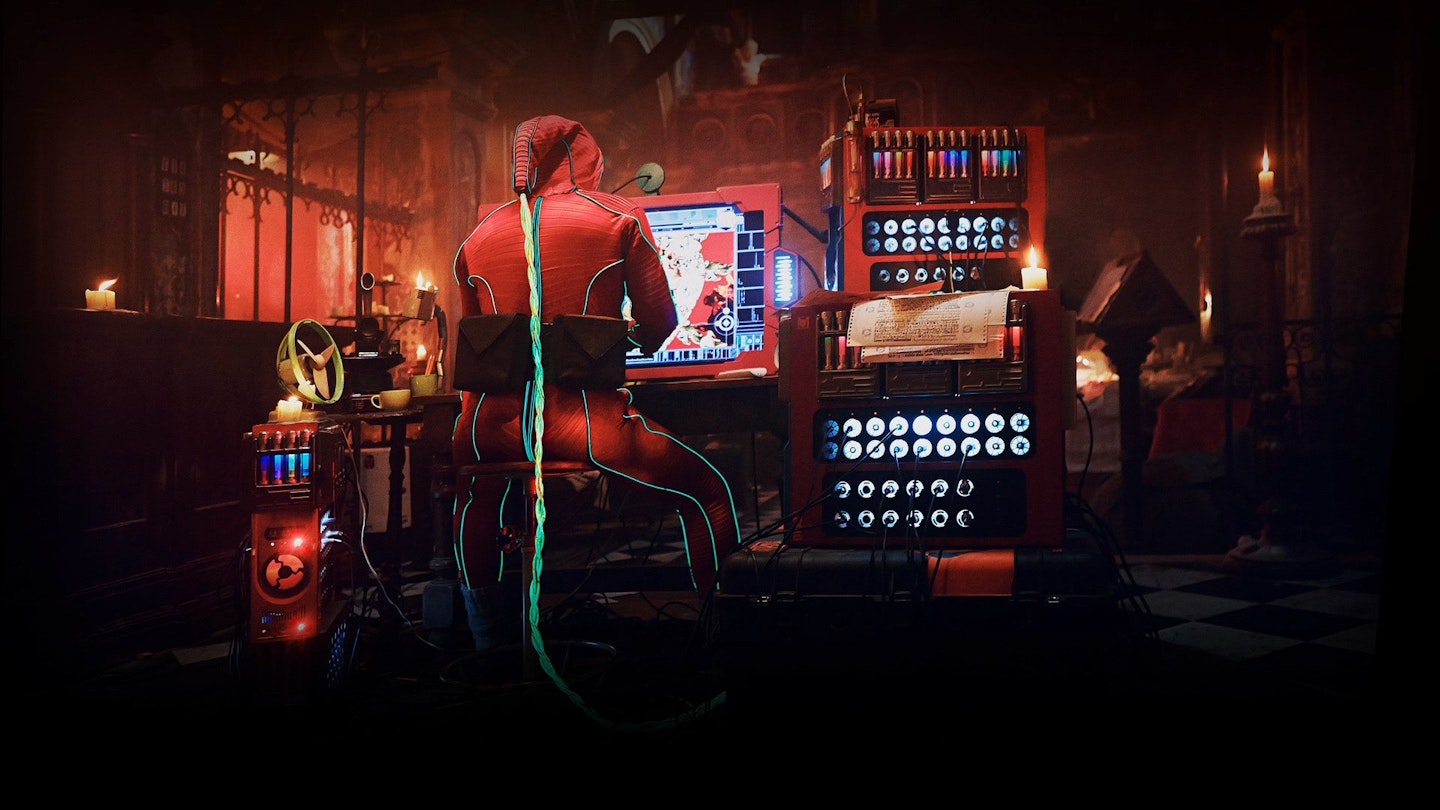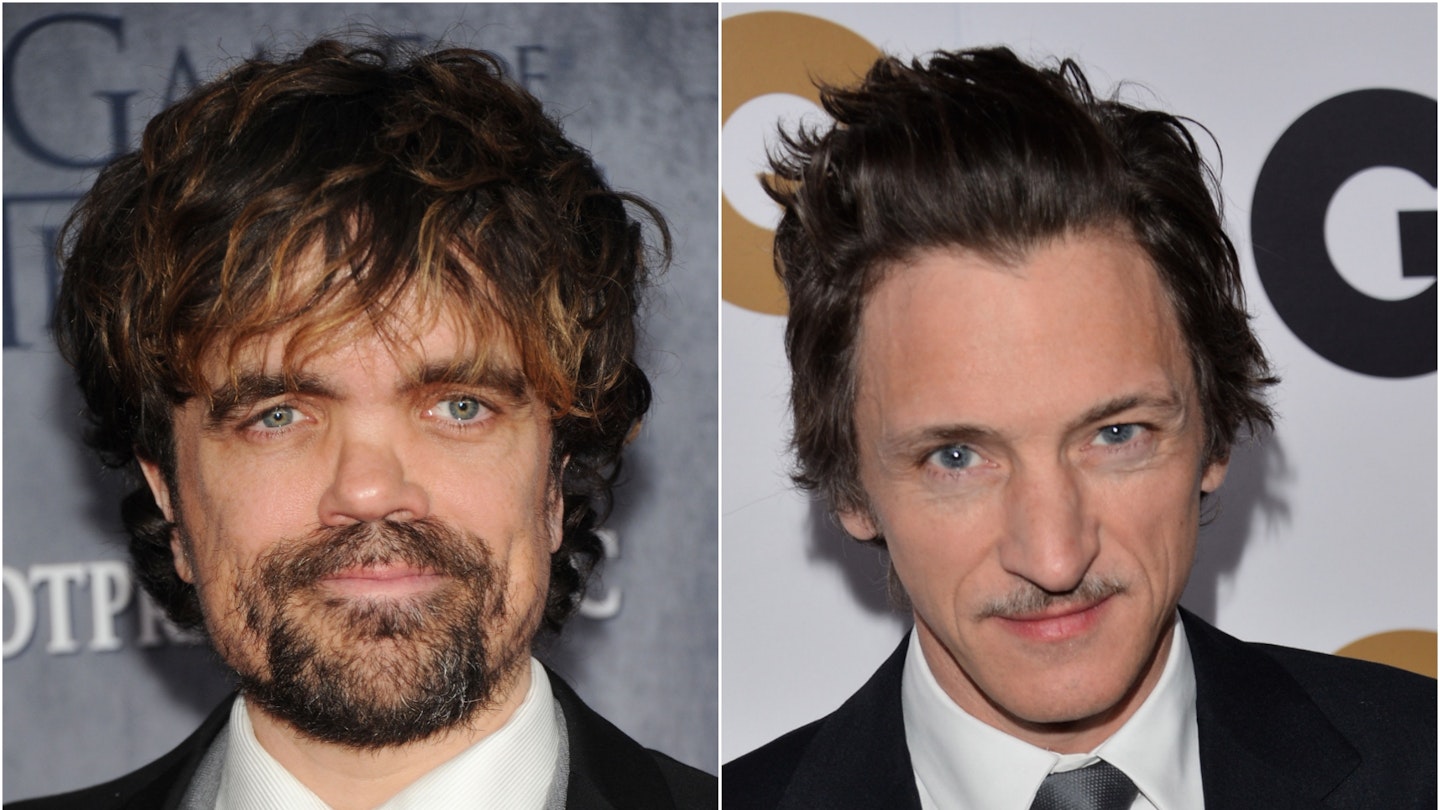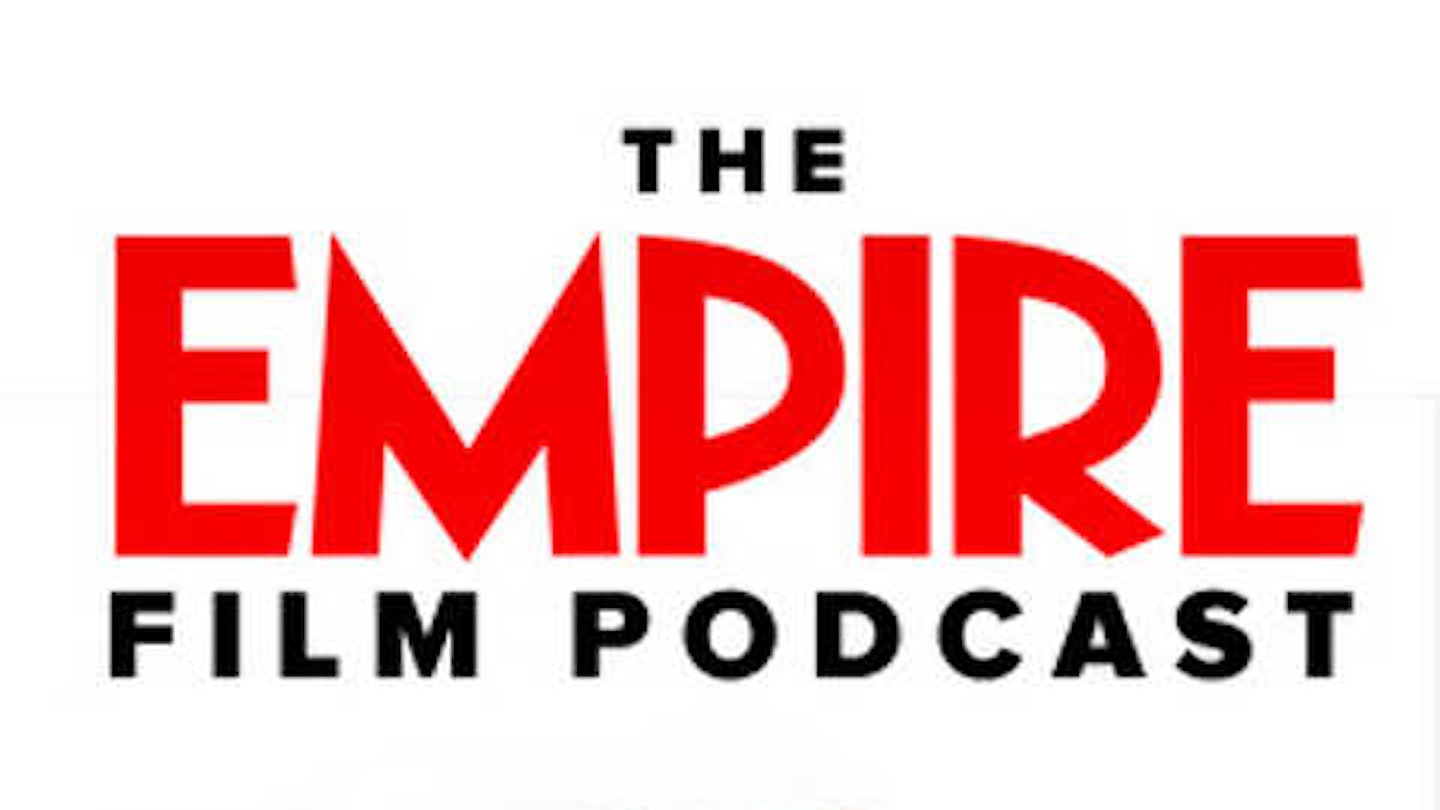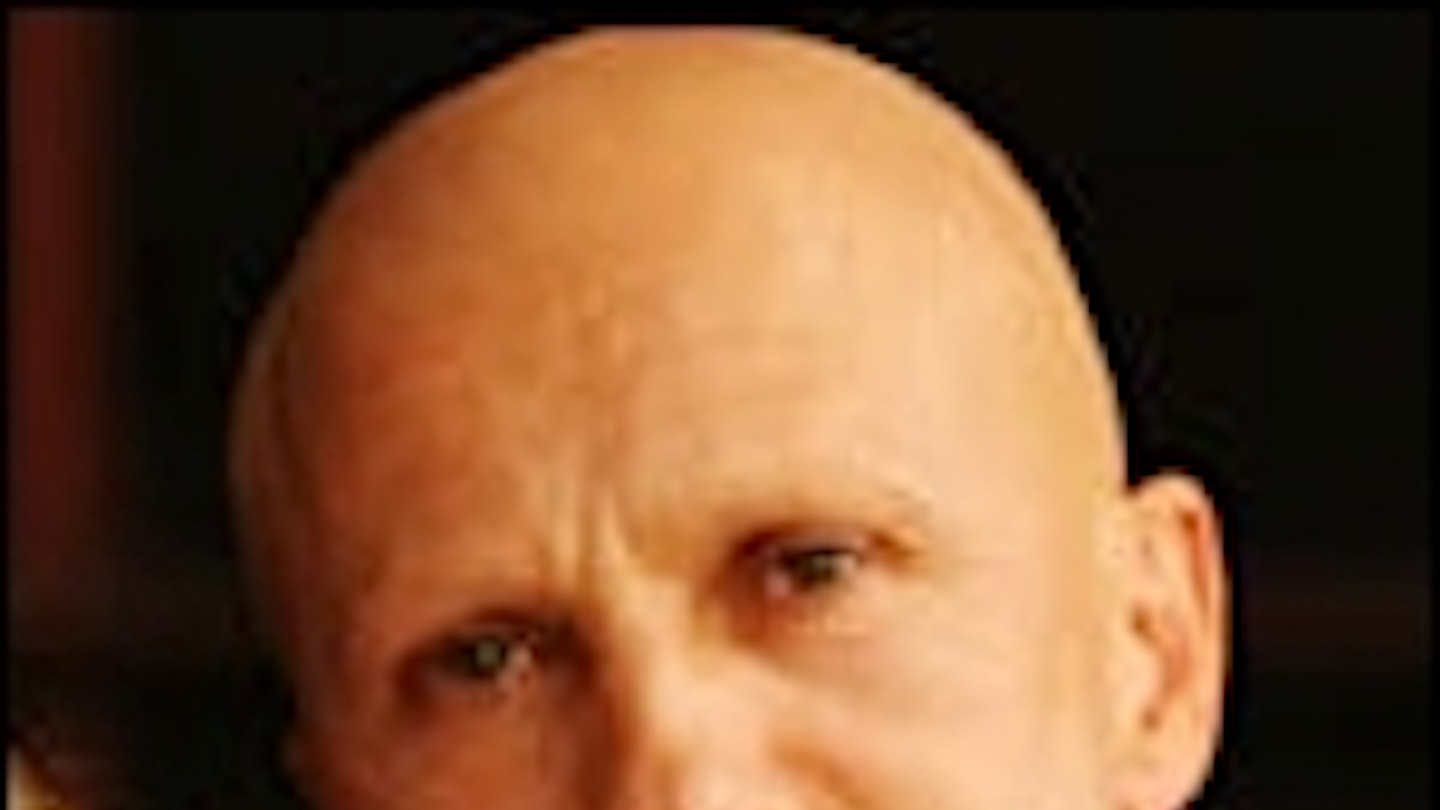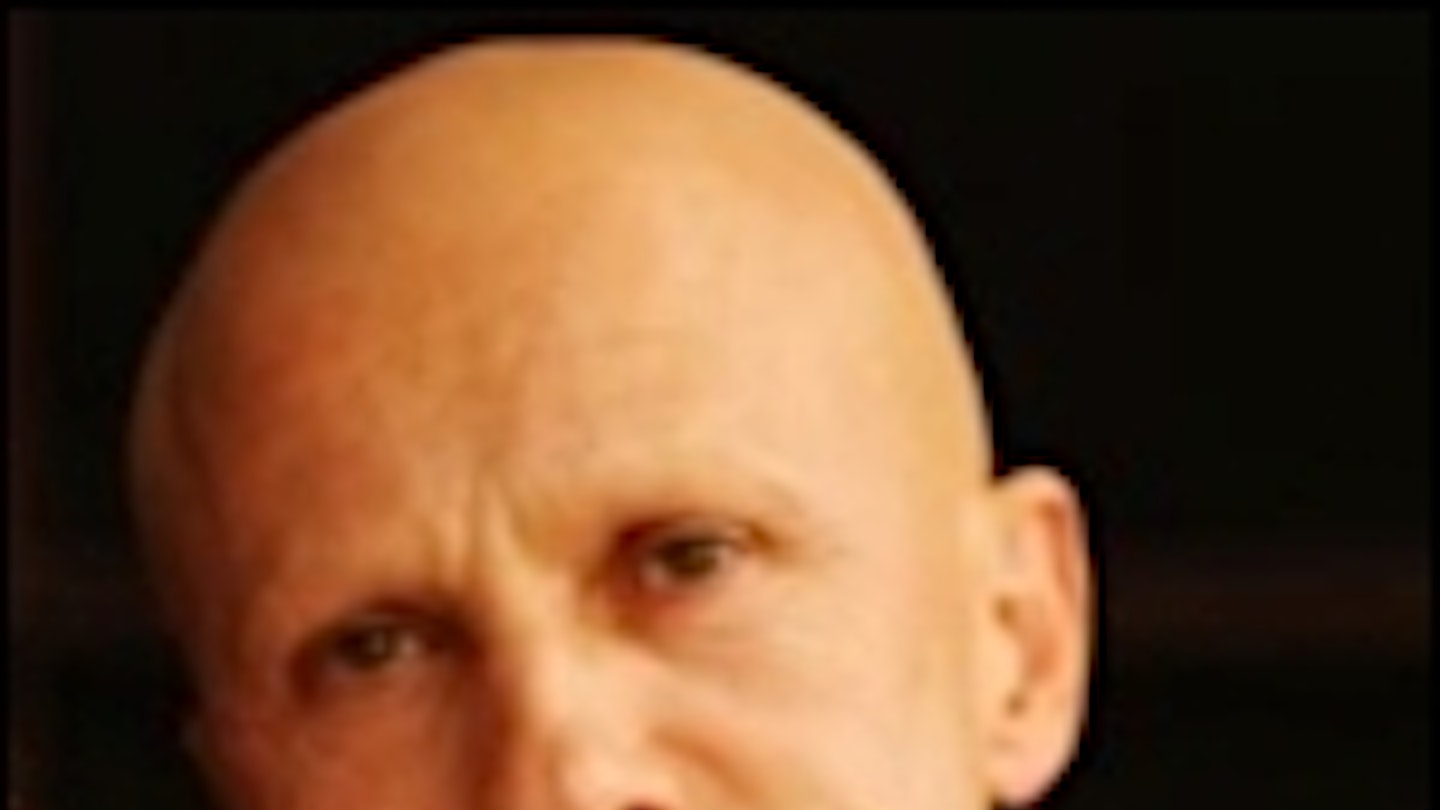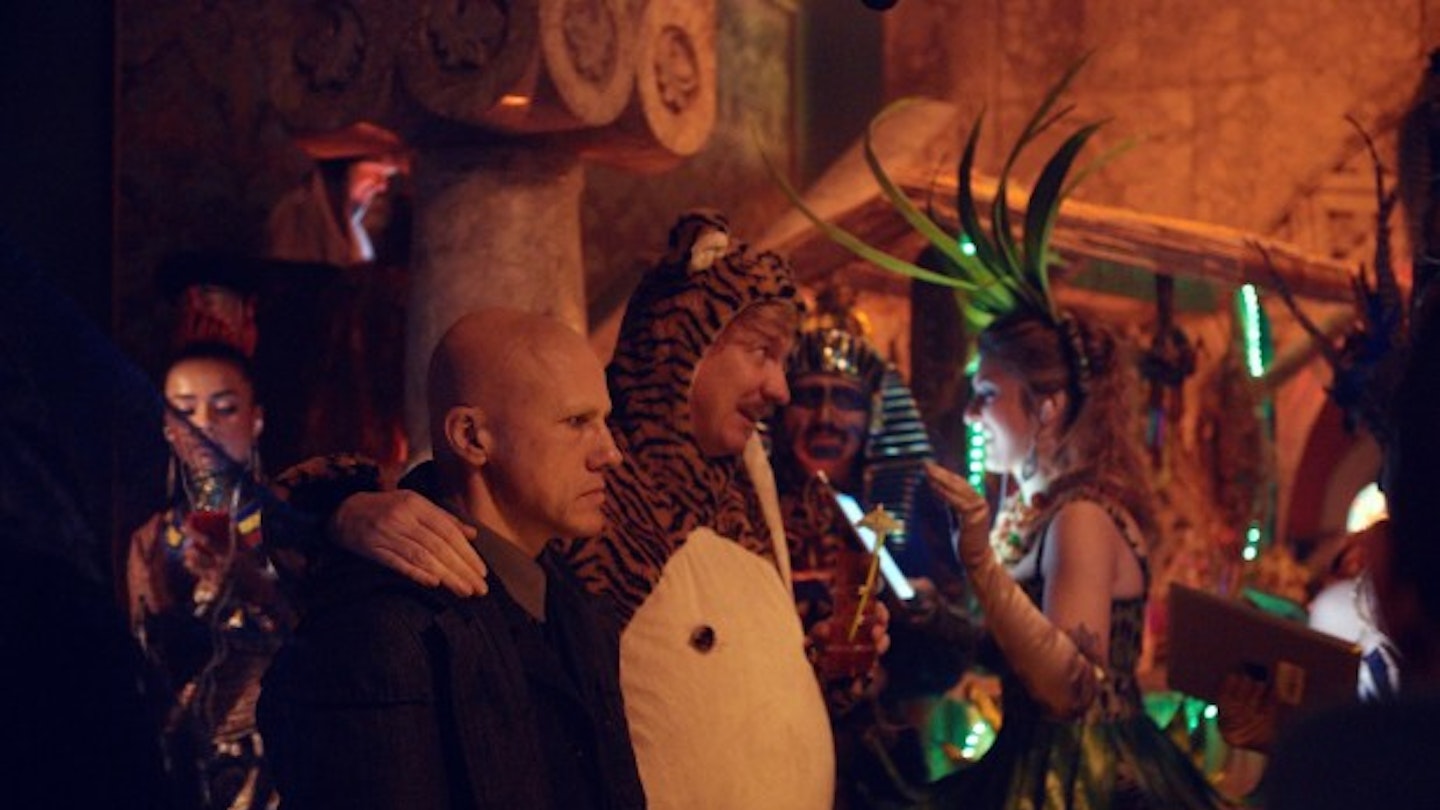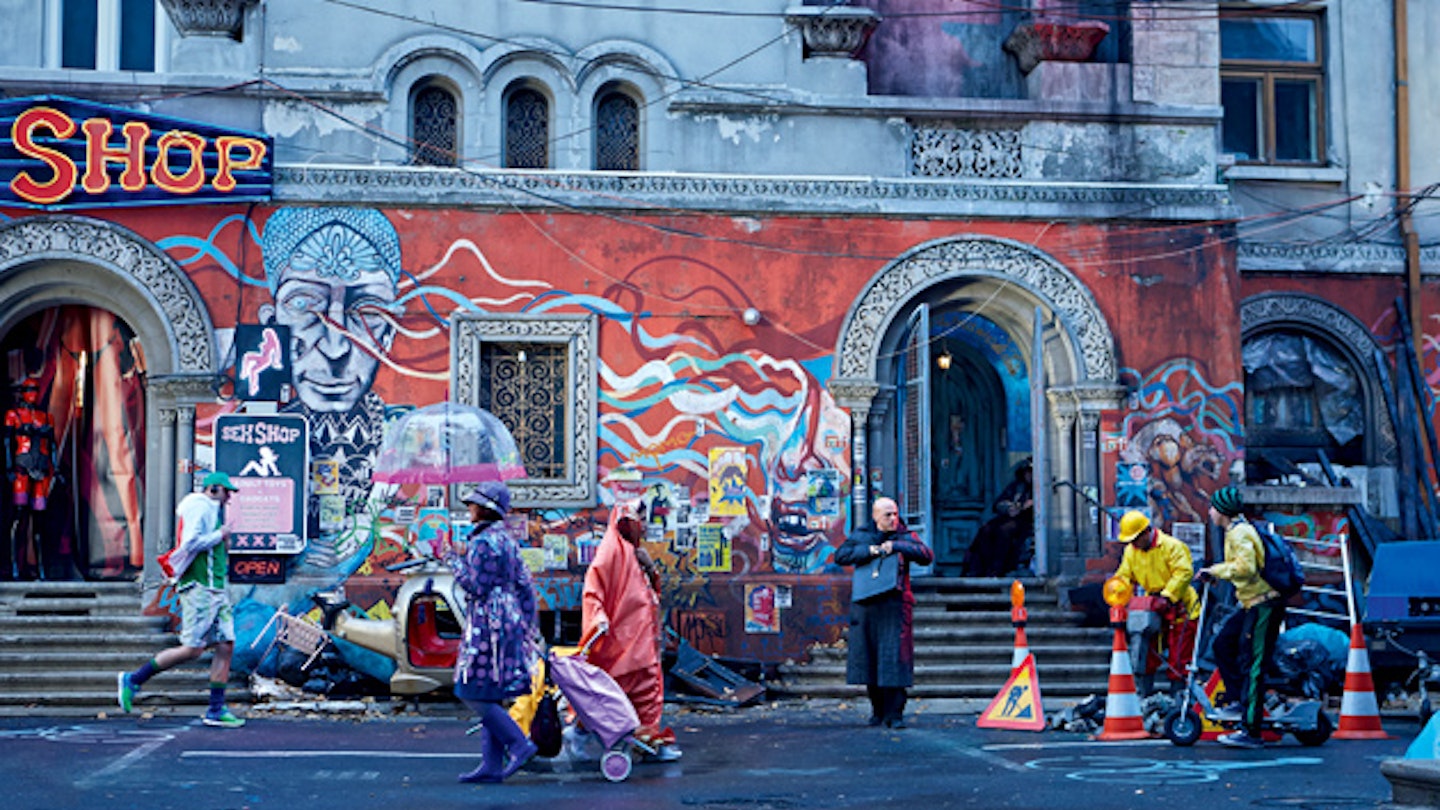The first image of The Zero Theorem, a naked man sitting at a retro-futurist work station in a refitted abandoned church, insists we’re back in the unique world of Terry Gilliam. It evokes the opening titles of Monty Python and the “somewhere in the 20th century” aesthetic of Brazil. However, “somewhere in the 21st century” Gilliam is finding contemporary absurdities to extrapolate into ridiculous yet horrific future trends: a park dominated by a sign enumerating all the things which
are forbidden in appealing little ideograms; a party in a darkened house where all the guests’ faces are underlit by the iPad-type devices they are constantly consulting; a virtual-reality sex site which might nudge a visitor to understand the nature of the universe.
All this brilliance is the background, like the streaming-news headline gags which will make you wish for a freeze-frame function in the cinema, often threatening to take over the film (like the Gilliam supporting short which invades the main feature in The Meaning Of Life). Pat Rushin’s screenplay could almost be a play: two-thirds of the film takes place in one (impressive) set, and there’s a great deal of talk about mathematics, the universe and true love. Great themes, no doubt, but the packaging is more stimulating than the gift inside. Even the mad geniuses who pursue the Zero Theorem admit no-one would really want the proof of pointlessness which lies at the end of this quest.
Christoph Waltz’s Qohen is an eccentric, electric everyman, surrounded by vivid characters: sure-to-break-big Melanie Thierry is a manic pixie dreamgirl with teeth, while hologram Matt Damon, David Thewlis (who comes across as a hitherto-unknown Python) and virtual Tilda Swinton contribute funny bits. While many will find The Zero Theorem irritating, it tackles big ideas without pretension, reminding us that Terry Gilliam is an essential filmmaker, taking on the thankless task of making the personal, difficult, ambitious movies cinema needs if it is to survive.
